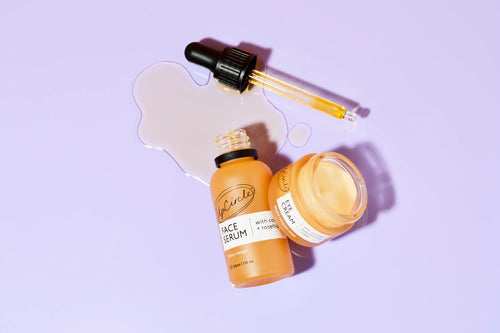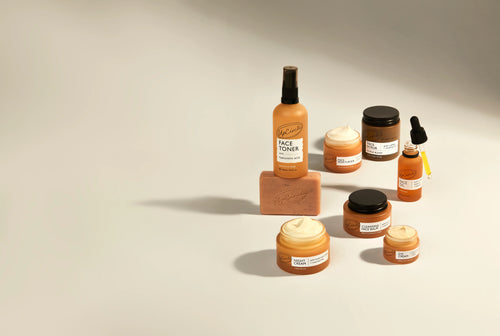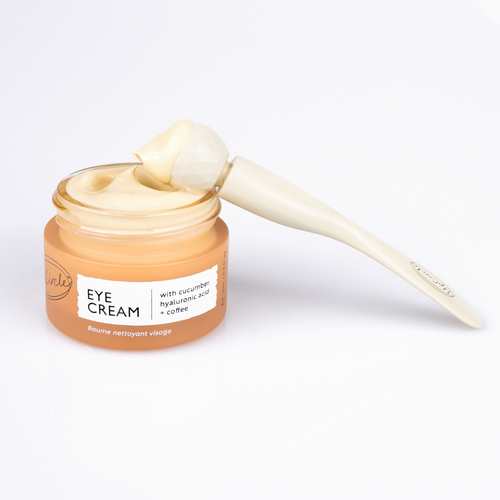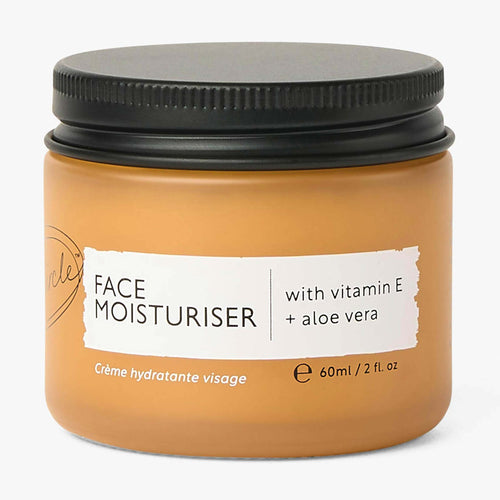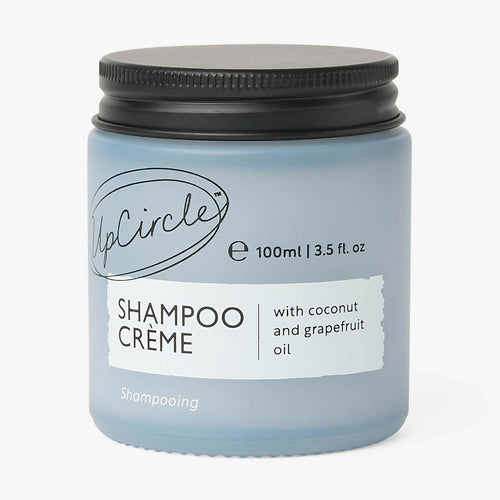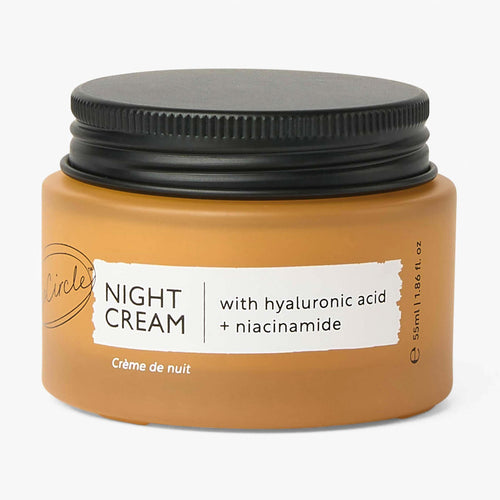The buzzwords in the skincare and beauty industry are endless – and bakuchiol is just one of the latest. Hailed as an alternative to retinol, bakuchiol is gaining some serious momentum.
Find out all you need to know about the ingredient and the skin benefits of bakuchiol in this UpCircle guide.
What is bakuchiol?
Bakuchiol is a vegan skincare ingredient derived from the seeds of the Psoralea Corylifolia plant, sometimes known as the babchi plant. Hailed for its antioxidant, anti-inflammatory and skin-soothing properties, bakuchiol has quickly become a firm favourite in many skincare routines.
Often referred to as a natural alternative to retinol – which, while offering a bounty of skincare benefits, is sometimes harsh on the skin – bakuchiol is being used in more and more skincare products. Studies have shown that bakuchiol has a ‘retinol-like functionality’ – with users seeing improvement in ‘lines and wrinkles, pigmentation, elasticity, firmness and overall reduction in photo-damage’.
While bakuchiol is naturally derived from the babchi plant and is a vegan ingredient, that doesn’t necessarily mean it fits into the ‘clean beauty’ movement. We’ll explore this more after discussing the benefits of bakuchiol in skincare.
Bakuchiol benefits for skin
There are many benefits of bakuchiol for skin that can be achieved by using bakuchiol-rich products. These include:
1. Suitable for all skin types
Unlike bakuchiol’s harsher alternative, retinol, the power ingredient can be used by people with all different skin types – including sensitive skin. Because bakuchiol is less likely to cause irritation than retinol, bakuchiol is often favoured by those with more sensitive skin.
2. Soothes and heals irritated skin
Bakuchiol has been found to be an effective anti-inflammatory agent, reducing redness, swelling and irritation. As bakuchiol is generally well-tolerated by all skin types, there is less risk of adding to any irritation.
3. Reduces hyperpigmentation
Some studies have shown that when using a bakuchiol 0.5% cream twice daily over 12 weeks, bakuchiol significantly decreased hyperpigmentation, with no statistical difference between the results from retinol use or bakuchiol use.
Bakuchiol helps to encourage cell turnover and regeneration, in turn promoting a more even skin tone and reducing hyperpigmentation. Its antioxidant properties also help to reduce hyperpigmentation as the damage from free radicals can contribute to hyperpigmentation.
4. Protects the skin from free radicals
Because of its antioxidant properties, bakuchiol can help to protect the skin against free radical damage. Free radicals are atoms without an electron pairing which try to steal an electron from elsewhere – consequently unbalancing healthy atoms.
The damage caused by free radicals can impact the skin in a number of ways, including: dryness, uneven pigmentation, wrinkles and lines, sagging, age spots, broken blood vessels and crepey skin.
5. Plumps the skin
Collagen is essential for skin health. While it is the most abundant protein found in the human body, that doesn’t mean that you don’t need a boost every now and again!
Collagen helps to plump the skin by providing moisture, strength and elasticity. It also helps to protect the skin from damage caused by various environmental stressors such as UV radiation, free radicals and pollution.
Bakuchiol FAQs
We’ve covered the basics of bakuchiol, but now it’s time to answer some of our most frequently asked questions about bakuchiol.
Can bakuchiol be used with retinol?
Considering that bakuchiol is often thought of as the natural alternative to retinol, it might be surprising to learn that you can actually use both bakuchiol and retinol together. However, it is important to be cautious when introducing any new ingredient into your skincare routine – especially retinol.
Some people find that retinol is too irritating on their skin, or that they can only tolerate it when used less frequently. Retinol is often used according to the principles of skin cycling – giving the skin ‘rest days’ in between using harsher products such as retinoids. When using bakuchiol and retinol in your skincare routine, start by using them on different days to reduce the risk of irritating your skin.
It’s thought that using bakuchiol and retinol together can actually boost the effectiveness of the individual ingredients. This could be why the beauty space has seen more bakuchiol-retinol hybrid skincare products emerging.
Can bakuchiol cause purging?
Yes, bakuchiol can cause skin purging for some people. Skin purging is characterised by blackheads, whiteheads and pustules, often happening as a reaction to certain active ingredients in skincare products – including bakuchiol.
Where does bakuchiol come from?
Bakuchiol is derived from the seeds of the Psoralea Corylifolia plant, which is more commonly known as the babchi plant. It has long been used in traditional Ayurvedic and Chinese medicine – centuries before the skincare world found out about it!
This plant grows throughout India in regions such as the Himalayas, Bombay and Bengal, as well as in the tropical and subtropical regions of the world, such as China and Southern Africa.
Can I mix niacinamide with bakuchiol?
Yes, you can use niacinamide and bakuchiol together – and they make a great skincare pairing. You’ll get all the benefits of bakuchiol such as plumped and soothed skin as well as niacinamide benefits such as treating acne and strengthening the skin’s natural barrier.
Our Award-Winning Vegan Night Cream is rich in niacinamide, helping to replenish the skin barrier, minimise pores and reduce hyperpigmentation, making it a great pairing to use with bakuchiol.
Is bakuchiol sustainable?
While bakuchiol is both natural and vegan, it is not thought to be sustainable. A study on the properties of the Psoralea Corylifolia plant notes that due to a decline in natural populations and the destruction of its habitat, the plant is endangered. Using an ingredient from an endangered plant in your skincare routine simply cannot be sustainable.
UpCircle bakuchiol skin care alternatives
While bakuchiol is a natural and vegan skincare ingredient, it simply isn’t sustainable. The movement of ‘clean beauty’ isn’t just about being vegan and natural – for a product to be clean it should also not harm the planet. As a vegan and sustainable brand, ethics is always our priority – find out more about the ingredients we upcycle.
A sustainable alternative to bakuchiol is pro-retinol, a form of vitamin A which is a milder retinoid than retinol. We enriched our Night Cream with Hyaluronic Acid & Niacinamide with upcycled cold-pressed blueberry extract, a natural source of pro-retinol. You’ll benefit from replenished and hydrated skin, and can be sure you’re doing the right thing by our planet. Better still, the product is part of our refill scheme. Save some money and reduce your waste – win, win!
We covered more about our reasons for choosing to use pro-retinol in our sustainable night cream, rather than bakuchiol, in our blog Pro-Retinol vs Bakuchiol.
Shop for sustainable, vegan and cruelty-free skincare at UpCircle.

